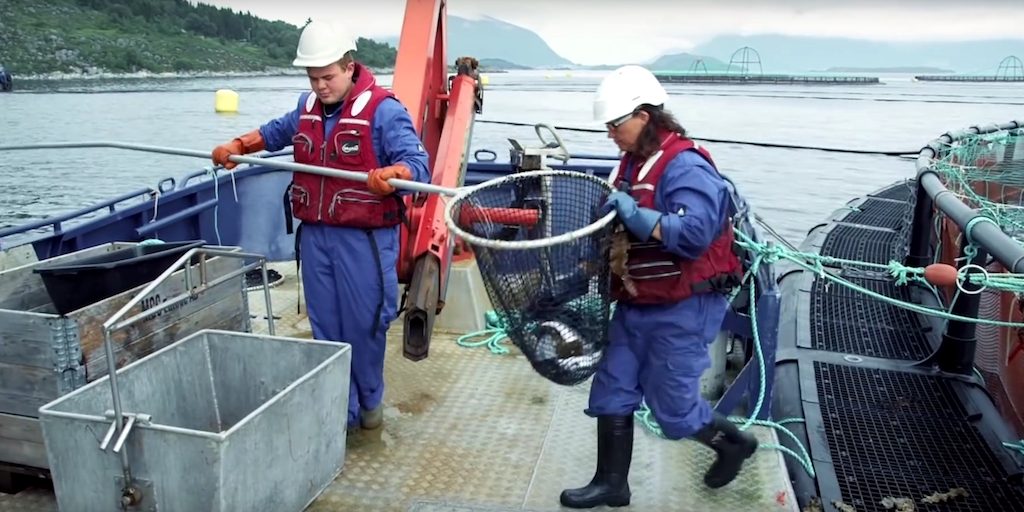
GSI: Salmon farming making leaps in sustainability
April 26, 2018
By
Liza Mayer
Farmed salmon has the lowest overall cost to the environment compared to other major animal proteins, says the Global Salmon Initiative (GSI) in its latest sustainability report.
Farm-raised salmon has shown to be one of the most eco-efficient forms of protein production, ranking low (9.8) in terms of carbon footprint than any commercially raised food, such as chicken (43.2), pork (56.7) and beef (337.2).
Due to an increase in the use of non-medicinal approaches and sharing of best practices in sea lice management, the use of medicinal sea lice treatments has gone down by 40 percent over the past five years among GSI members, the report said. GSI members comprise 17 salmon farmers around the world, which together account for over 50 percent of the global farmed salmon sector.
The report added that continued innovations in the sourcing and efficiency of feed ingredients have enabled GSI members to reduce their use of fish oil and fishmeal by 16 percent and 15 percent (calculated per forage fish dependency ratio), respectively.
GSI’s sustainability report provides consumers and stakeholders a lens through which they can measure the salmon industry’s performance. It is the fifth year GSI members have released the report since the initiative’s launch in August 2013.
Its 17 members operate in eight countries – Australia, Canada, Chile, Faroe Islands, Ireland, New Zealand, Norway, and the United Kingdom — and over 40 percent of their production is now certified to the Aquaculture Stewardship Council (ASC) standard.
 GSI’s sustainability report provides consumers and stakeholders a lens through which they can measure the salmon industry’s performance
GSI’s sustainability report provides consumers and stakeholders a lens through which they can measure the salmon industry’s performance 




